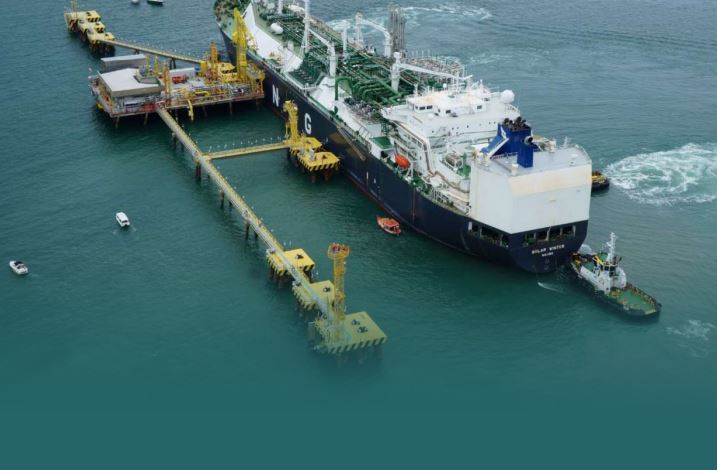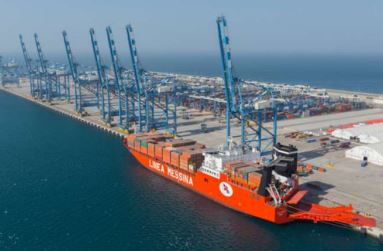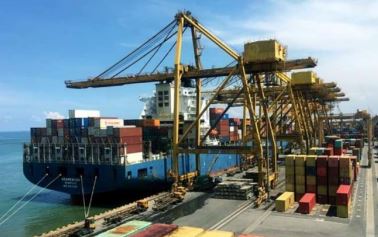
Pakistan possesses extensive maritime potential to be harnessed. However, several self-inflicted wounds hinder progress in this vital sector.
Prof. Dr. Sajid Mehmood Shahzad
The Maritime Sector in Pakistan serves as the bedrock of the country’s blue economy, playing a pivotal role in facilitating trade. It acts as the primary conduit for fossil fuel imports, accounting for nearly 95 percent of commerce and approximately 31 percent of the GDP. This translated into a substantial trade value of around US$80 billion in 2022.
Pakistan possesses extensive maritime potential waiting to be harnessed. With a coastline stretching over 1000 kilometers (540.4 Nautical miles), encompassing Sindh (266.5 kilometers) and Balochistan (734.5 kilometers), Pakistan ranks 74th among 142 coastal states in terms of coastline length.
This vast coastline offers immense opportunities for the development of ports, harbours, shipyards, tourism, and other associated industries that can significantly contribute to the growth of the Blue Economy.
However, despite this potential, several self-inflicted wounds hinder progress in the maritime sector. Exact marine scientific research, including survey and seafloor mapping, is lacking, compounded by the shortage of oceanographic expertise and marine technology.

Overexploitation of living resources, marine pollution, and the destruction of fish habitats further exacerbate these challenges. Moreover, factors beyond human control, such as rising sea levels, the depletion of mangrove forests, the retreat of seaweeds, and the degradation of the Indus Delta, also contribute to the hurdles faced.
However, one glaring issue prevalent across all tiers of national maritime governance is the absence of a resolute will to promote and prioritize this crucial sector. A lackluster and fragmented approach pervades the realm of Maritime Affairs in Pakistan, hampering its growth potential.
This commentary examines the reasons behind Pakistan’s inadequate attention to its maritime zones, despite their abundant resources. Moreover, it seeks to offer suggestions on harnessing the tremendous maritime potential within Pakistan’s sea zone.
Despite boasting an extensive Exclusive Economic Zone (EEZ), three major ports, significant merchant marine potential, and numerous fish harbors, Pakistan has yet to optimize these advantages fully. Evaluating seabed resources, including hydrocarbons, metallic deposits, and minerals, reveals a deficient state of marine science research in Pakistan, resulting in substantial economic losses.
It is imperative to acknowledge that the answer to Pakistan’s fragile economy lies in its sea resources. Now is the time for relevant stakeholders to recognize the potential of the Blue Economy and harness the country’s sea resources accordingly.
Pakistan’s maritime interests primarily lie in the North Arabian Sea, spanning over 1000 kilometers along its coastline and in the total area of 290,000 square kilometers out at sea. Significant international sea lines of communication traverse within and beyond Pakistan’s domain within this maritime area of interest. The Strait of Hormuz, located close to Pakistan, assumes paramount importance as an energy gateway for the international passage of oil tankers and the shipment of goods and services. With over 80 percent of the country’s energy goods imported via sea, Pakistan’s ties to maritime trade are undeniable.
Consequently, safeguarding and preserving the sanctity of its maritime interests becomes essential not only for Pakistan’s strategic interests but also for the world’s greater good. However, it is crucial to acknowledge the existing challenges, as maritime forces often find themselves overstretched.
A dedicated maritime authority must address the shrinking valuable marine living resources resulting from resilient monitoring and ineffective control mechanisms. Creating the Pakistan National Maritime Authority (PNMA) under the federal government would significantly boost Pakistan’s blue economy.
Moreover, integrating the National Maritime Coordination Committee (NMACC) into the Pakistan National Maritime Authority while fostering collaboration with all federal and provincial ministries, divisions, and departments would further strengthen governance in the maritime sector.
It is essential to recognize that the impediments to exploring and exploiting Pakistan’s EEZ resources in the Indian Ocean are not insurmountable challenges but the absence of will at all government and private sector levels.

To fully capitalize on the economic and financial benefits, activating and prioritizing the Pakistan Maritime Sector is of utmost importance at the national level under the dedicated auspices of the Pakistan National Maritime Authority. Embracing this approach will enable Pakistan to unlock the vast potential of its blue economy and secure a prosperous future.
We need to fill the gaps in marine science and technology right away. Under the ocean’s surface are economic benefits that cannot be reached without many studies, scanning the sea floor, and mapping marine resources. By spending money on cutting-edge oceanographic tools and information, we can learn more about the marine ecosystem and make better decisions about using resources and making policy.
Governance and coordination systems that work well in the maritime field are essential. Related parties can pool their resources, make better choices, and work together by creating a specialized body like the Pakistan National Maritime Authority (PNMA). Working closely with federal and provincial ministries, divisions, and departments and integrating with the National Maritime Coordination Committee (NMACC) will strengthen the sector’s governance structure and encourage coordinated action. Awareness and teaching about the blue economy must also be a top priority at all levels of society.
In Pakistan, people need to be more aware of the economic, environmental, and social benefits that can be gained from the country’s marine resources to support and advocate for sustainable growth. Communities, schools, and businesses can all work together through focused awareness campaigns, educational programs, and projects that build people’s skills and abilities.
Pakistan can take advantage of all the economic opportunities in the maritime sector if it invests in marine research, sets up sound government systems, and educates the people. Pakistan can boost economic growth, job creation, and long-term development by taking an innovative, forward-thinking approach to the blue economy.
Now is the time for Pakistan to use its ocean riches and create a blue economy to benefit the nation. This way, the government can decrease the dangers of economic default.

The writer is the Vice-Chancellor,
Minhaj University, Lahore.

